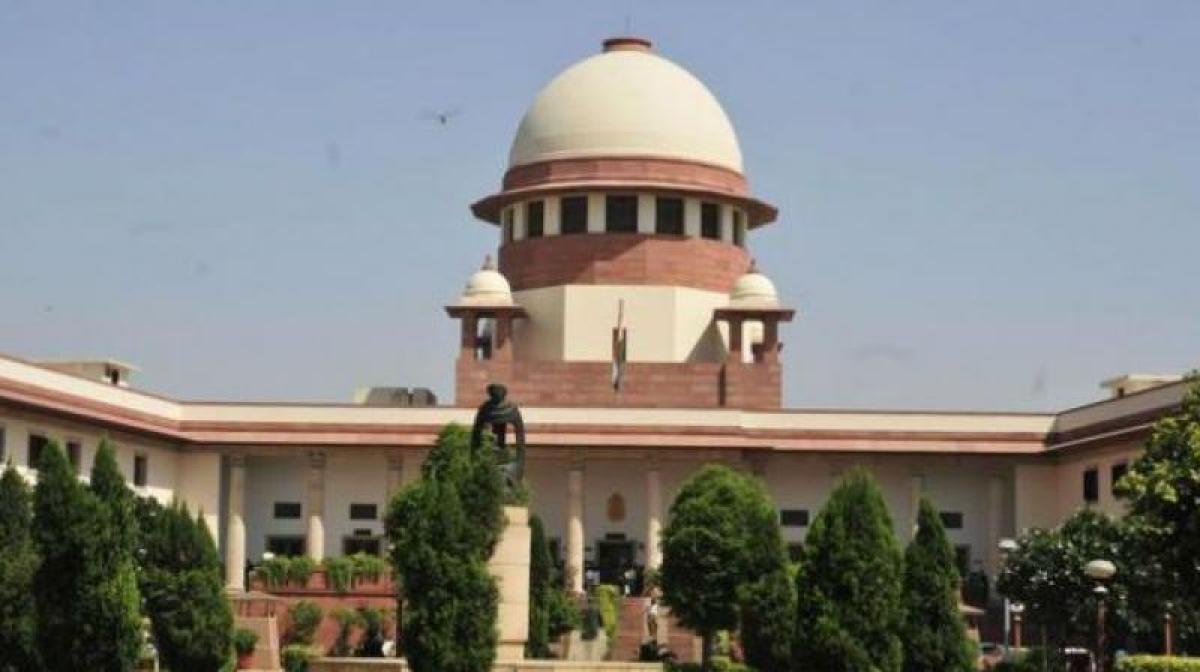Live
- Over 7,600 Syrians return from Turkiye in five days after Assad's downfall: minister
- Delhi BJP leaders stay overnight in 1,194 slum clusters
- Keerthy Suresh and Anthony Thattil Tie the Knot in a Christian Ceremony
- AAP, BJP making false promises to slum dwellers for votes: Delhi Congress
- 'Vere Level Office' Review: A Refreshing Take on Corporate Life with Humor and Heart
- Libya's oil company declares force majeure at key refinery following clashes
- Illegal Rohingyas: BJP seeks Assembly session to implement NRC in Delhi
- Philippines orders full evacuation amid possible volcanic re-eruption
- Government Prioritizes Welfare of the Poor, says Dola Sri Bala Veeranjaneyaswamy
- Two Russian oil tankers with 29 on board damaged due to bad weather
Just In

The NGO had also suggested that MHA should have a tie-up with YouTube and WhatsApp to ensure that such offensive videos are not uploaded and the culprits punished.
Internet majors like Google, Yahoo and Facebook and instant messaging application WhatsApp were directed by the Supreme Court to furnish details of complaints they have received in India about the uploading of objectionable contents on child pornography, rape and gangrape.
The apex court asked them to provide such details they received last year and this year till August 31 and also about the action taken by them on such complaints.
A bench comprising Justices Madan B Lokur and U U Lalit directed the Ministry of Home Affiars (MHA) to apprise it about the number of prosecution under the provisions of the Protection of Children from Sexual Offences Act (POCSO) 2012, during this period.
"We would like the participating companies Google, Google India, Yahoo, Microsoft, Facebook and WhatsApp to place affidavits regarding number of complaints they have received from India about the objectionable contents concerning child pornography, rape and gangrape for the year and till August 31 and the action that has been taken on it," the bench said.
The court was hearing a letter sent to then Chief Justice of India H L Dattu by Hyderabad-based NGO Prajwala, along with two rape videos in a pen drive.
The top court had on its own taken cognisance of the letter about posting of these videos on WhatsApp and asked CBI to launch a probe to apprehend the culprits.
During the hearing today, the bench was informed by the committee, comprising representatives from the Centre and the internet majors which was constituted to explore technical solutions to block videos of sexual offences on social sites, that these companies had some objection to its report being placed in the public domain.
Chairperson of the committee told the court that these participating companies have raised some objections, after which the lawyers representing the internet firms said they should be given the copy of the panel's report which has been filed in the court in a sealed cover.
He said there were several aspects on which no consensus was arrived at during the deliberations by the committee. Senior advocate Kapil Sibal, appearing for one of the companies, said they would come to know about the contents of the committee's report only when they were provided with its copy.
Sibal also argued that they wanted to know what were the recommendations which the committee wanted to place in public domain.
To this, the apex court directed that the proposals and recommendations contained in the report be supplied to the lawyers representing the participating companies.
The bench directed that the proposals and recommendations be supplied to the lawyers in a sealed cover within three days and posted the matter for hearing on September 18. The court also asked the MHA to file its affidavit in two weeks.
The counsel for the petitioner alleged that this matter was getting delayed and the problem was the manner in which these companies were responding.
On the issue of confidentiality of the report, the lawyer said if the court feels, proceedings could be held in-camera.
The apex court had earlier observed that the committee would hold discussions and meetings to arrive at a consensus on the possibility of ensuring that such objectionable videos pertaining to child pornography, gang rape and rape were not made available on the internet.
Earlier, cyber security officials, who function under the CBI, had told the bench that internet was a "wild highway" and blocking objectionable content at the source was a technical challenge for which clear guidelines needed to be issued to stop circulation of such material.
The Centre had informed the court that it would set up a specialised agency to block and curb the sharing of sexual offence videos on social networking platforms.
The NGO's letter had also mooted the idea of maintaining a national sex offenders' register which should contain details of persons convicted for offences like eve-teasing, stalking, molestation and other sexual assaults.
The NGO had also suggested that MHA should have a tie-up with YouTube and WhatsApp to ensure that such offensive videos are not uploaded and the culprits punished.

© 2024 Hyderabad Media House Limited/The Hans India. All rights reserved. Powered by hocalwire.com







